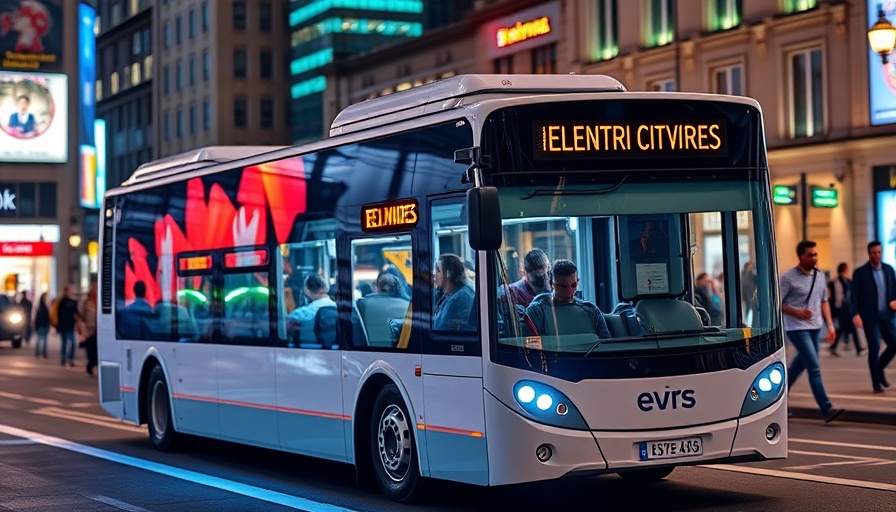
European Cities Embrace the Future of Transportation
In an exciting leap towards sustainable urban mobility, 49% of new city buses in the European Union were zero-emission models in 2024, marking a significant increase from the 36% recorded in 2023. This shift, revealed by the European Federation for Transport and Environment (T&E), is a pivotal step in combating air pollution and fostering cleaner, healthier cities. In particular, the surge in battery-electric bus sales, which accounted for 46% of new buses, illustrates a strong shift away from fossil-fuel-powered public transport.
Driving Forces Behind the Transformation
The impressive growth in zero-emission buses can be attributed to both new regulations and proactive local policies. The effective implementation of low-emission zones and fleet targets has catalyzed rapid adoption across cities. T&E’s forecasts are ambitious, suggesting urban transport could reach 100% zero emissions as early as 2027. This projection offers hope for future generations who will benefit from quieter, cleaner streets.
Inspiring Success Stories Across the EU
Leading the charge are countries that have effectively embraced electric mobility. Notably, the Netherlands, Finland, and Iceland achieved 100% battery-electric city bus sales in 2024, setting a benchmark for others. Spain and the UK are also making remarkable strides, with zero-emission models comprising 57% and 56% of new bus sales, respectively. Meanwhile, Estonia's rapid transformation is inspirational; after being at the bottom of the zero-emission rankings in 2023, the country's battery-electric sales jumped to an astounding 84% in 2024. Such examples showcase what is possible when commitment and resources align.
Challenges and Opportunities Ahead
Despite the optimism surrounding these developments, challenges remain. Certain EU nations like Slovakia and Austria still lag behind in the adoption of electric vehicles. However, with proposed regulations emphasizing zero-emission requirements for heavy-duty vehicles by 2030, the landscape is set for substantial change. The trend towards electrification promises not only environmental benefits but also economic opportunities within the green technology sector.
Readiness for a Cleaner Tomorrow
As we witness a bustling transition in urban mobility, it’s crucial for tech-savvy health enthusiasts to consider how such advancements impact overall wellness. Cleaner air and reduced noise pollution contribute to better health outcomes for communities. The shift towards zero-emission models reflects a larger trend in the intersection of technology and public health, offering a compelling case for investing in sustainable solutions, both environmentally and personally.
As cities transform, residents can look forward to a future marked by cleaner air and quieter streets. This ongoing shift reveals not just an advancement in urban transportation, but also a commitment to health and sustainability throughout Europe.
 Add Row
Add Row  Add
Add 




 Add Row
Add Row  Add
Add 



Write A Comment